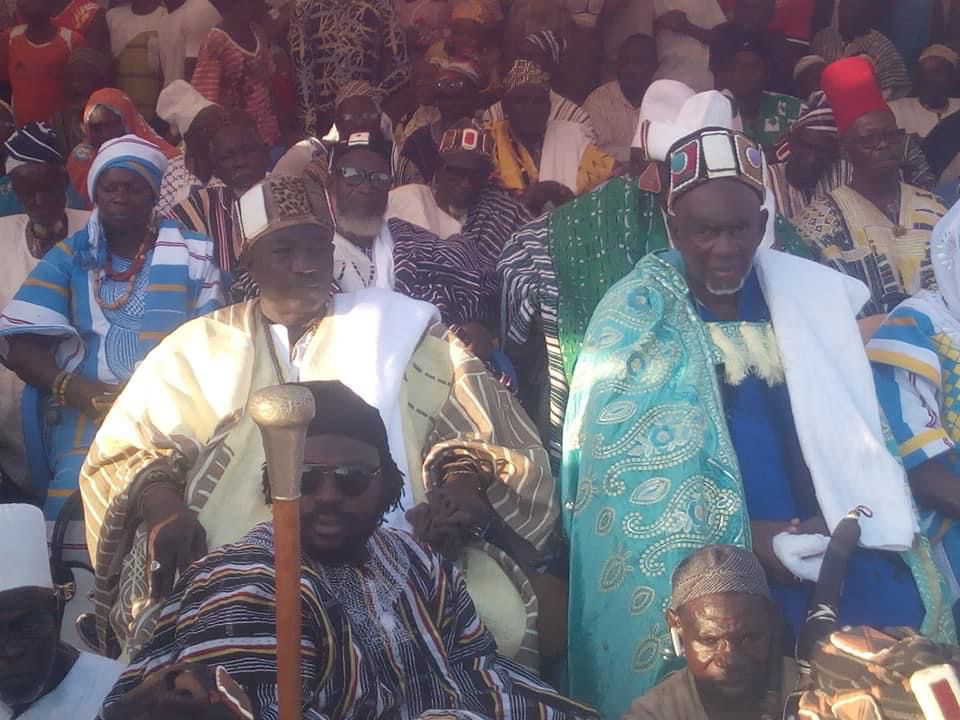
Facts about the Wala People also known as Waala People of Ghana and Burkina Faso, West Africa.
Tuesday, October 26, 2021
Wala People can be found in the Upper West Region of Ghana and some parts of Burkina Faso.
They are also known as Waala or Walba it is claimed they founded the Wala Kingdom under the leadership of Imam as early as the 1317, Wala Kingdom was largely expanded from the Kulpawn river to the west, Black volta river to the east , Dasima to the northeast and Tantama to the southwest.
In 1894, Wala Kingdom was separated off as an Independent and they are part of the Gur speaking people, they are related to Birifor, Dagomba, Frafra and Vagla people also they are classified under Nabihi who are royals headed by the Wa Naa, Tendema which is the landlords, Widaana, Yerinamine which is the Chief of Muslims and also headed by Yeri Naa Limanhi which is the Imams and Wa Liman .
Wala Chief is known as Wa Na, In Wala concept Creator or Supreme Being is known as Naangmin, Traditional Priest of a particular shrine is known as Tengbangaa and they grow crops such as cassava, sorghum, millet, yam and other crops as well the Lobi and Wals share similarities including languages, cultures, traditions.
According to their Oral history an ancient Arabic document, Khitab Ghanja, Gonja and Wala chronicles which is the first written record of Wa, King Abdallah of Wa died in 1143 and the Wala Kingdom was rather established in the mid 1600s by the Wala Imam then Islam was first Introduced by a Wangaara traders, and In the late 1700s.
It is said the Imam came and founded the Wana 's court the mande group of Muslim and Wangara traders settled in Present day Wa In the villages of Nasa and Kpalwogho later the yarna of one of the village Introduced Ya'umaru a Imam and son of the founder of Wala Kingship.
Ya'umaru was welcomed and he established a muslim Influence in Wa. Mande who are Muslims were Integrated into the Walaland through marriages and observance of the customs and began to speak wali language instead of the mande languages , they were three types of Authority in Wa, the Na are King markers who select the next Na, Nabihi the descendants of Na, Nalun have authority over the previous Na.
According to Anthropologist Josè they occupied the black volta region of Ghana and Burkina faso, In the 1600s it is believed they lived in Mamprugu and established control over the Dagomba and Lobi, they settled in Present day Upper West in the late 1700s later Lobi also migrated to Gold Coast Present day Ghana due to the Invasions and slave raiders also from other groups. In Wala Culture they play instruments such as drums, flutes and Xylophone as well they performed using instruments during funerals, festivals such as Kpiru Kyiu festival, Damba festival, Don festival and others and performing of war dance.
According to Mohammed Bin Salah, Naa Sorliah was the epic ancestor who led the present day Nabiihi of Wa on their migration from Mamprugu to the Wa area. They were Mamprugu Princes.
On arrival they settled at Gbetore and Naaha villages not far away from present day Wa town. Sorliah chose to settle at Gbetore where he lived, died, and was buried thus becoming the first Gbetore Naa. It was his son Pelpuo 1st who migrated further along side the Tagrahi Mande migrant merchants, and the Limanhi , Mande migrant clerics into present day metropolis called Wa .
They met the Tengdaamba already settled there. It was these four groups, Tengdaamba, Nabiihi, Tagrahi, and Limanhi who together laid the foundation of Wa town.Naa Sorliah did not live to see Naang Chieftaincy established in Wa. This fact not withstanding, the Nabiihi, in commemoration of his esteemed royal status as the epic ancestor of the Nabiihi of Wa and as the first Gbetore Naa, the Nabiihi till date have always enskined a Gbetore Naa.
Source: Selikem Okatakyie


















